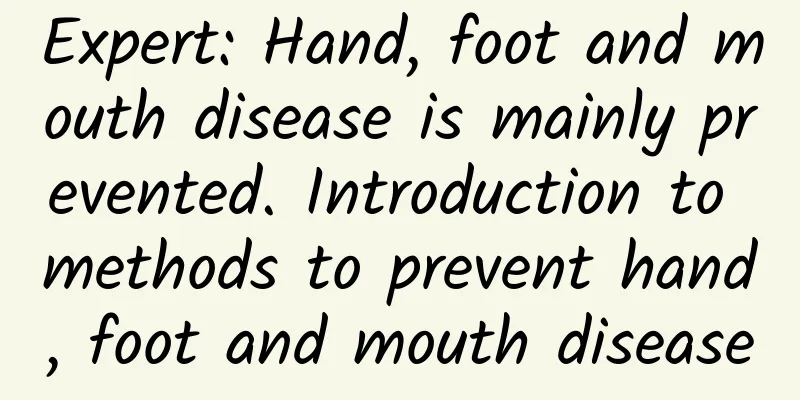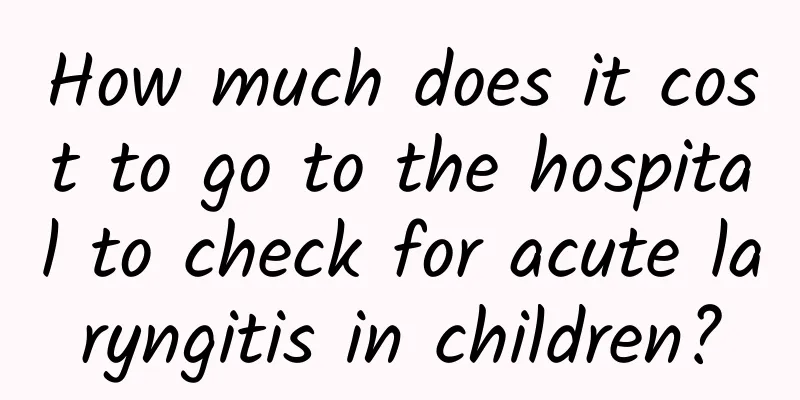Expert: Hand, foot and mouth disease is mainly prevented. Introduction to methods to prevent hand, foot and mouth disease

|
Every May, Beijing enters the peak season for hand, foot and mouth disease. Hand, foot and mouth disease is a common infectious disease. Medical experts believe that the focus of attention to hand, foot and mouth disease should be on prevention. Good hygiene for children, families and childcare institutions is the key to preventing the spread of the disease. The general population is susceptible to hand, foot and mouth disease, but the incidence is highest in children under 5 years old, especially those under 3 years old. The Beijing Center for Disease Control and Prevention announced that from January 1 to April 13 this year, a total of 2,250 cases of hand, foot and mouth disease were reported in Beijing, a decrease of about 15% from the 2,664 cases reported in the same period last year. In an interview with reporters, experts from the Institute of Immunization and Prevention of Beijing Center for Disease Control and Prevention believe that hand, foot and mouth disease can be transmitted in many ways. It can be transmitted through the gastrointestinal tract, that is, fecal-oral transmission, or through the respiratory tract, such as droplets, coughing, etc. It can also be transmitted through contact with oral and nasal secretions of patients or contaminated objects. However, the prevention of hand, foot and mouth disease is also relatively simple. Patient hygiene and disinfection of children, families and childcare institutions is the key to preventing the spread of this disease. Experts suggest that parents should first urge their children to wash their hands carefully with soap before meals, after defecation, and after going out and coming home. In addition, parents should also pay special attention to the cleanliness of their own hands. If their hands are not washed clean, the virus may also be transmitted to the child through close contact such as feeding and hugging. Secondly, whether at home or in childcare institutions, do not let children drink unpurified tap water directly and eat less raw and cold food. Parents should wash raw vegetables and fruits for children and try not to take infants and young children to crowded places. Thirdly, childcare institutions and schools should maintain good ventilation in classrooms and dormitories, wipe and disinfect the surfaces of door handles, stair railings, tables and other objects every day, conduct morning inspections every day, and take timely measures to send suspected children to the hospital or have them rest at home. At the same time, all the children's belongings should be disinfected immediately. Finally, in daily life, parents should use soap and 84 disinfectant to disinfect children’s daily necessities, toys, and diapers on time, and boil milk containers and tableware for disinfection. This article comes from the editor's online forum and is posted by netizens. This website only quotes it for reference and does not mean that this website agrees with the views of the article. If you think that this article infringes your interests in terms of content and intellectual property rights, please contact us: 020-37617988. |
>>: What are the examinations for pediatric hernia? What are the types of pediatric hernia?
Recommend
What is neonatal persistent cholestatic jaundice? Analysis of the causes of neonatal jaundice
(I) Causes of the disease There are many causes o...
How much does it cost to treat diarrhea in children?
How much does it cost to treat diarrhea in childr...
How to treat hand, foot and mouth disease in children?
Children with hand, foot and mouth disease need t...
What are the typical symptoms of neonatal jaundice
What are the typical symptoms of neonatal jaundic...
What is the difference between atypical Kawasaki disease and Kawasaki disease?
The main difference between atypical Kawasaki dis...
What are the various diagnostic methods for breast milk diarrhea?
What are the various diagnostic methods for breas...
What are the symptoms of influenza in children? 2 symptoms of influenza in children
Colds and flu are both caused by viral infections...
How to distinguish pneumonia and tuberculosis in children
How to diagnose pneumonia and tuberculosis in chi...
What to do if your baby coughs
Babies who have just turned one month old are ver...
What to do if your child has a cough
Children's cough is a problem that many paren...
Can early stage Kawasaki disease be cured?
There is a question that people always ask, that ...
What are the causes of kidney disease in children?
The causes of kidney disease in children cannot b...
Is there a high chance of curing acute laryngitis in children?
Acute laryngitis in children is a common pediatri...
How to take care of children with pneumonia
Pneumonia is not unfamiliar in our lives, but bec...
Radical treatment of late-stage kidney disease in children
Nowadays, more and more people suffer from nephro...









